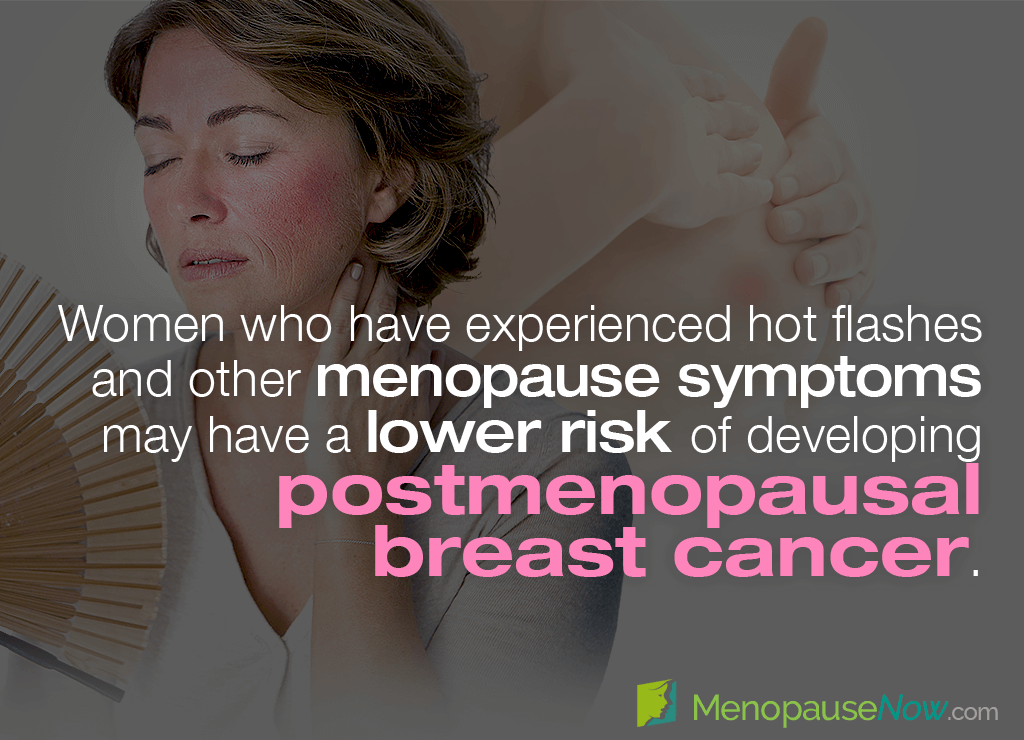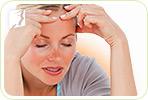Just when you were begging for someone to put you out of your menopausal misery and to stop the hot flashes and night sweats, research is emerging that may make you think twice. Read on to learn more about the link between breast cancer and menopause symptoms so you can be in the know.
What Are the Details of The Study?
The study was funded by The National Cancer Institute and published in the March 2011 issue of Cancer Epidemiology, Biomarkers & Prevention.
Participants between the ages of 55 and 74 who had suffered from invasive breast cancer (cases) were matched with those why had not suffered from invasive breast cancer (controls).
Then, the researchers focused the study on the relationship between types of breast cancer - invasive ductal carcinoma, invasive lobular carcinoma, and invasive ductal-lobular carcinoma - and menopause symptoms to see if the symptoms are more or less common in breast cancer survivors than controls.
Women were interviewed about their personal menopause experiences; reproductive history, including menstrual patterns; use of exogenous hormones; and other medical history data.
Menopause symptoms analyzed included hot flashes, night sweats, vaginal dryness, irregular periods, depression, anxiety, emotional distress, insomnia, and incontinence.
What's the Link?
The results led the scientists to conclude that women who have experienced hot flashes and other symptoms of menopause may have a lower risk of developing postmenopausal breast cancer. Hot flash intensity is also inversely related to risk.
When women enter the menopause transition, estrogen levels drastically fluctuate and begin to drop. With lower levels of estrogen, menopausal women can experience various symptoms in addition to the infamous hot flashes due to the hormone's effects on the hypothalamus, which regulates body temperature.
Low estrogen also means that women are less likely to develop breast cancer since higher levels of estrogen hormones are the principal cause. Increased estrogen levels may cause the rapid division of cells in the breast, which can lead to the development of cancerous tissues.
The association between menopause symptoms and decreased cancer risk did not change even after the researchers accounted for other known factors, such as obesity.
Surprisingly, the results of this study were the same for women who had used hormone replacement therapy (HRT). However, other studies have found that synthetic hormones increased the risk of ovarian and breast cancer as well as other health issues.
This study is only one of many to come assessing the link between breast cancer and menopause symptoms. If these results are confirmed by future researchers, then they could provide doctors with new impetus in pinpointing the causes of breast cancer as well as information on menopause symptom treatments that promote hormonal balance from the beginning.
Sources
- Huang, Y. et al. (2011). Relationship between Menopausal Symptoms and Risk of Postmenopausal Breast Cancer. Cancer Epidemiology, Biomarkers & Prevention, 20(2), 379-388. doi: 10.1158/1055-9965.EPI-10-0998
- NHS. (2011). Menopause symptoms and breast cancer risk. Retrieved December 14, 2018, from https://www.nhs.uk/news/cancer/menopause-symptoms-and-breast-cancer-risk/




